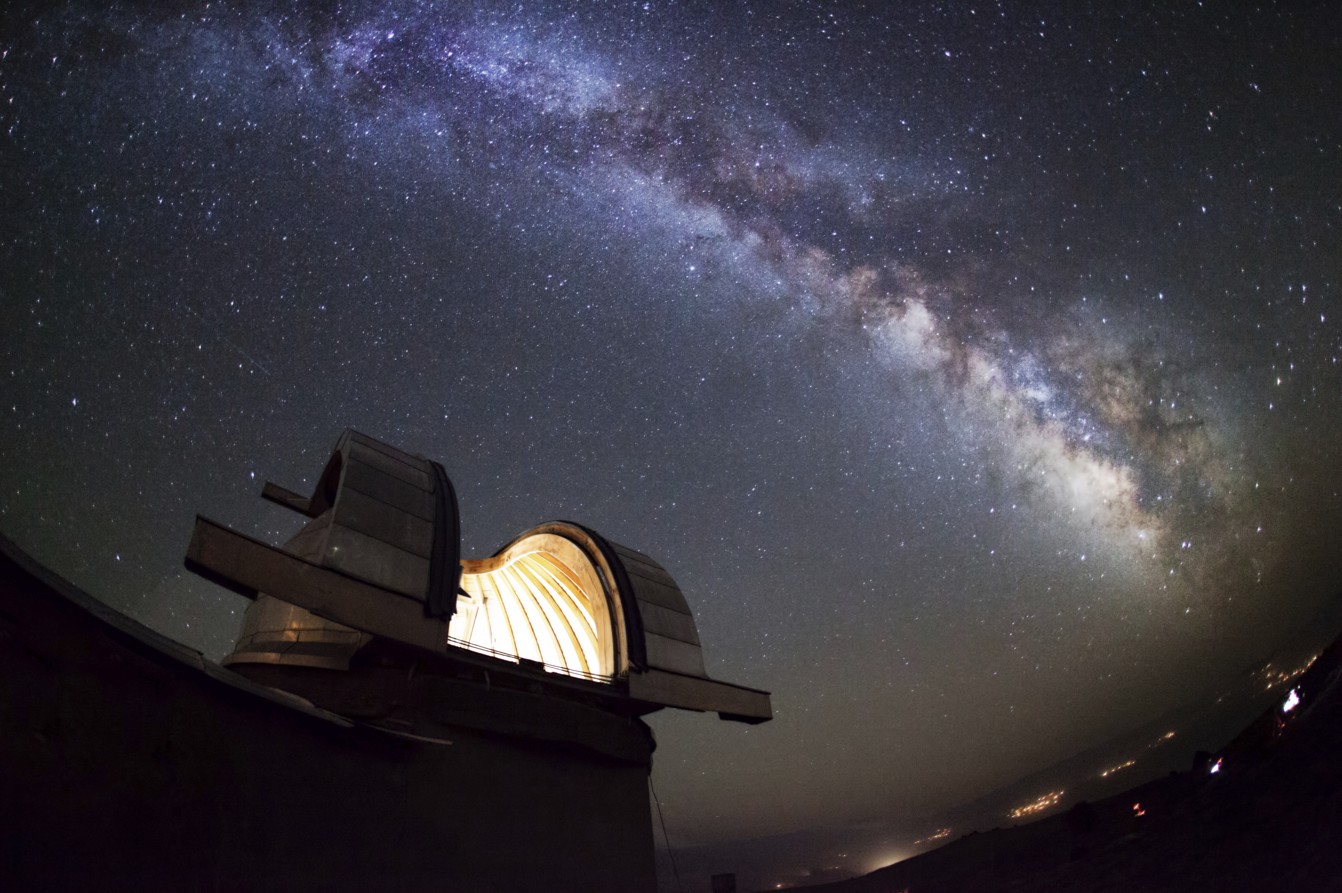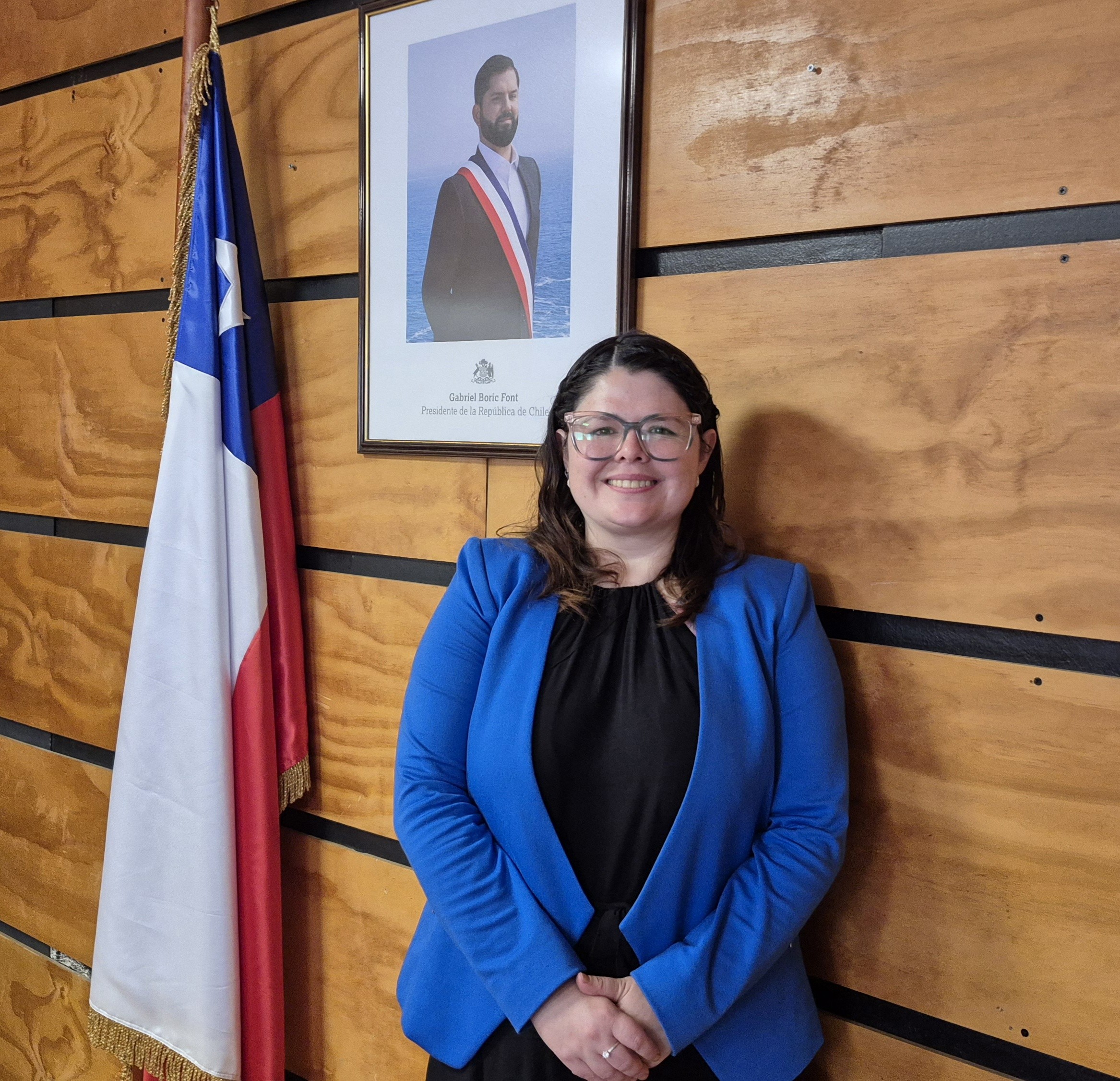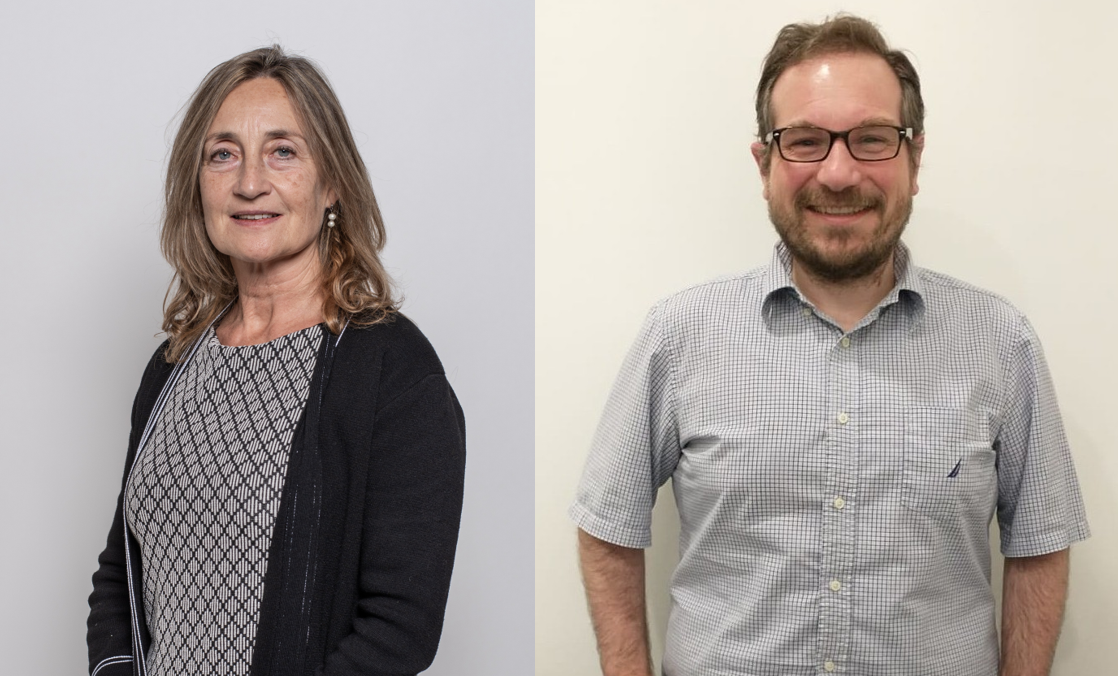
New Board of Directors takes office at CATA
The Center for Astrophysics and Related Technologies (CATA) is now headed by Principal Investigators Patricia Tissera, who took over as Director, and Roberto Assef, as Alternate Director.
On May 1, 2025, a new Director took office at the Center for Astrophysics and Related Technologies (CATA). Dr. Patricia Tissera, Professor at the Pontificia Universidad Católica de Chile (UC), became the new Director of the Center, while Dr. Roberto Assef, Professor at the Universidad Diego Portales (UDP), took the position of Alternate Director, and will be accompanied by Elise Servajean, General Manager of our organization. Both will be accompanied by Elise Servajean, general manager of our organization.
Thus, the new board takes over from the management led by CATA’s principal investigators, Dr. Ezequiel Treister (UTA) and Dr. Laura Perez (UCH), who performed outstanding work at the helm of our institution.
Dr. Patricia Tissera is a researcher in cosmology and galaxy formation. She has a recognized international career, having completed her undergraduate and graduate studies in astronomy at the National University of Córdoba, Argentina. Subsequently, she completed specialization studies at the universities of Oxford (United Kingdom) and Autónoma de Madrid (Spain). Based in our country since 2014, she has developed an outstanding work as Principal Investigator of CATA.
She currently leads the Computational Galaxy Formation and Evolution group at the Institute of Astrophysics and the Center for Astroengineering of the UC. Her commitment to science transcends research, having actively participated in international cooperation initiatives, as well as her role as coordinator of the Network of Argentine Scientists in Chile, and as co-director of the ERIS Millennium Nucleus.
Dr. Roberto Assef is a full professor at the Institute of Astrophysical Studies of the Diego Portales University (UDP). His research focuses on the study of Active Galactic Nuclei and their impact on the evolution of galaxies. He obtained his Ph.D. from Ohio State University (USA) and was a NASA postdoctoral fellow at the Jet Propulsion Laboratory (JPL) in Pasadena, California.
Both astronomers will have the mission of leading the CATA Basal Project, funded by the National Agency for Research and Development (ANID), whose main objective is to strengthen the country’s scientific base through substantial and long-term funding to interdisciplinary centers of excellence in research and development (R&D).
In addition to frontier research, the mission of the Basal Centers is to apply and transfer scientific results to public policy and the productive sector, promoting linkages between academia, the public sector and industry, both nationally and internationally.
Dr. Patricia Tissera commented on her expectations as CATA’s new Director. “It is an honor and a great responsibility to occupy this position. I am grateful for the trust that my colleagues have placed in me to carry out this challenge. CATA has worked since 2008 for the development of astrophysics in Chile, from an integral perspective that encompasses science, technology, knowledge transfer and outreach. This area is also an engine for the development of cutting-edge technologies that can be transferred to society and applied in a wide range of areas, from cell phones to health and industry, among others. We will continue to work so that CATA continues to strengthen its presence and impact on astrophysics in Chile and the world,” she emphasized.
Like the UC academic, Dr. Roberto Assef also expressed his gratitude for the appointment and hopes to contribute to the institution in his role as Alternate Director: “The CATA Basal Center brings together an important part of the Chilean astronomical community, and its great success has been a true reflection of the quality of the people who compose it. As Deputy Director I want to contribute to maintain this success, generating an environment that allows each researcher to develop the best science and technology possible”, said the professor of the UDP.
The new board will seek to consolidate CATA’s position as a regional and international benchmark in astronomy and technology transfer, promoting collaborative work between the universities associated with our center to bring astronomical knowledge to the public and industry.
Recent news
-
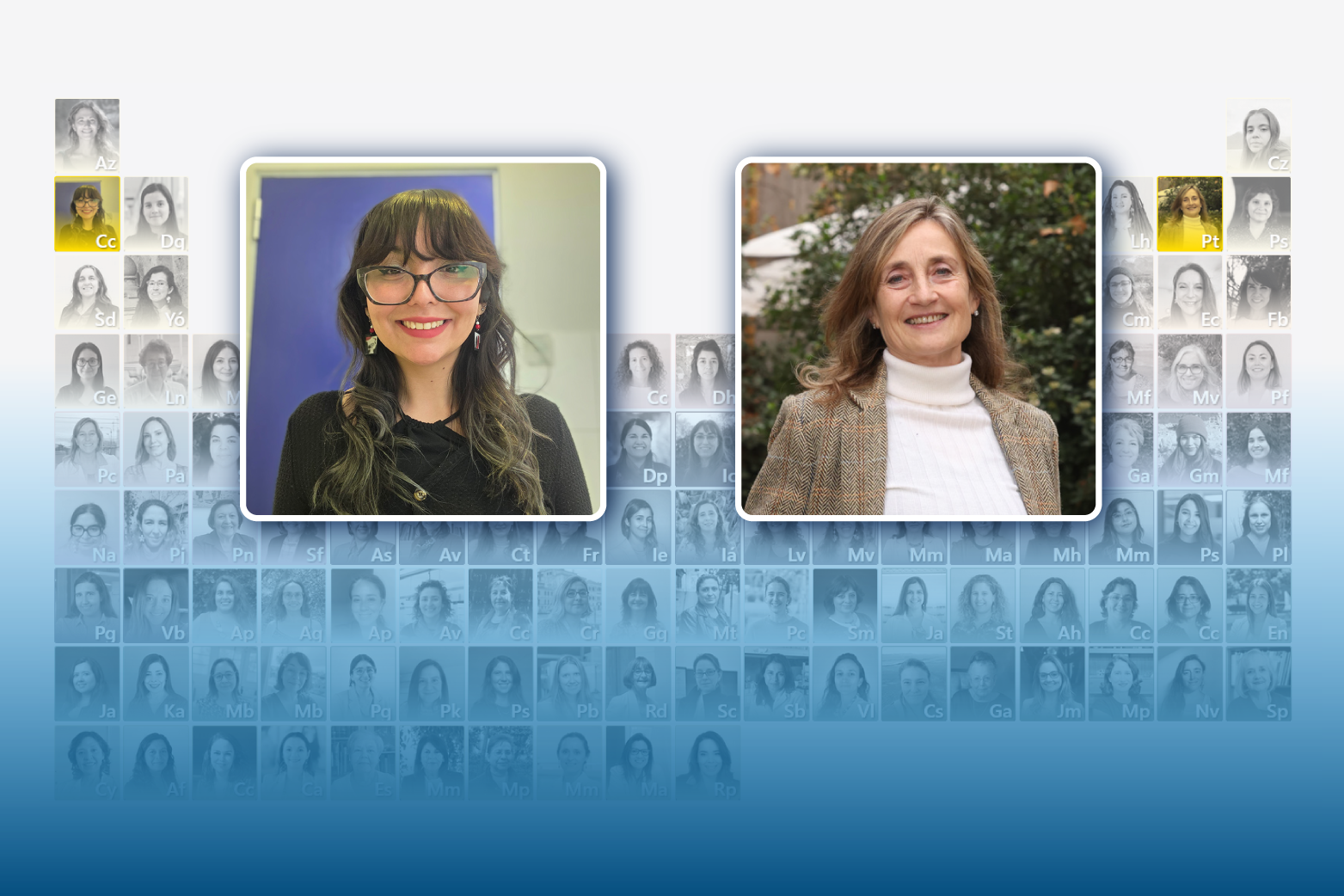 Publicado el: 17/02/2026The National Congress Library highlights CATA researchers in its second edition of Chilean Women Scientists
Publicado el: 17/02/2026The National Congress Library highlights CATA researchers in its second edition of Chilean Women Scientists -
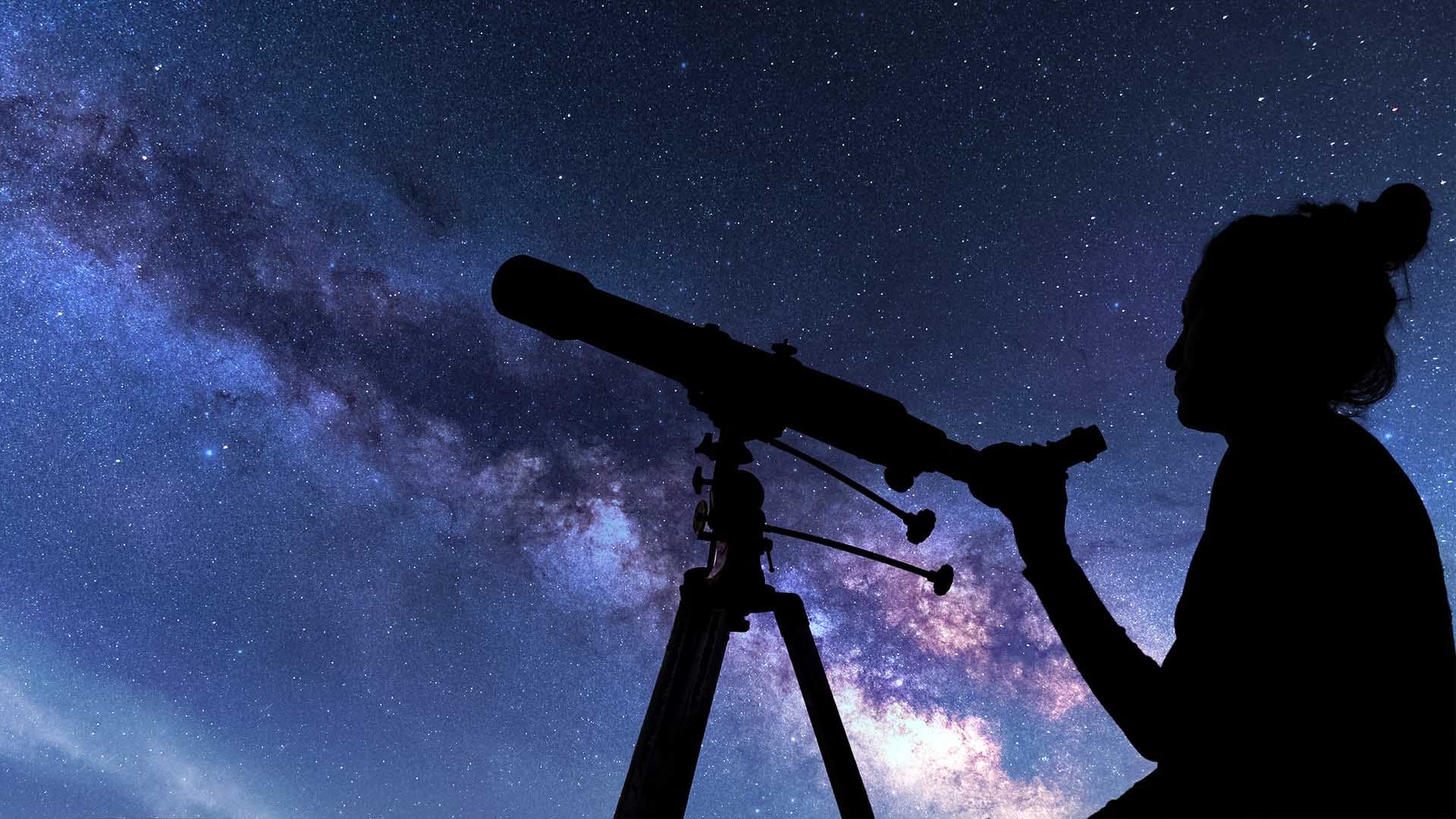 Publicado el: 11/02/2026Science with a woman’s face: gaps, vocations, and pending challenges
Publicado el: 11/02/2026Science with a woman’s face: gaps, vocations, and pending challenges -
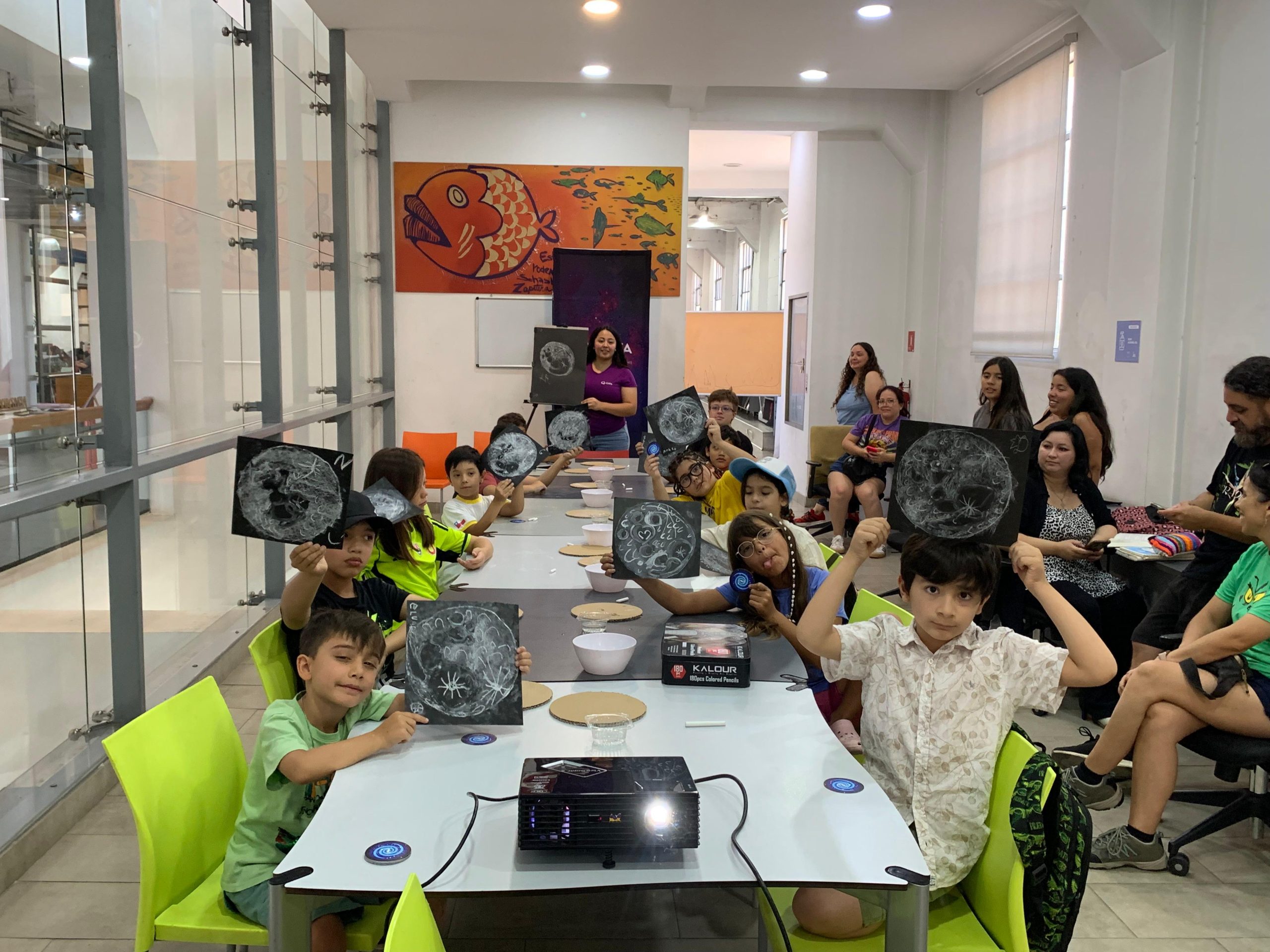 Publicado el: 09/02/2026Astronomy Day was held at the Santiago Library
Publicado el: 09/02/2026Astronomy Day was held at the Santiago Library -
 Publicado el: 30/01/2026Looking ahead to the next five years: Galaxies Area meets to share progress and strengthen research
Publicado el: 30/01/2026Looking ahead to the next five years: Galaxies Area meets to share progress and strengthen research -
 Publicado el: 29/01/2026Will Earth have two moons until 2083? The idea behind object 2025 PN7
Publicado el: 29/01/2026Will Earth have two moons until 2083? The idea behind object 2025 PN7
Categories list
- Acknowledgments 24
- Astrobiology 8
- AstroCluster 1
- Black holes 19
- Corporativo 62
- Cosmology 5
- Descubrimientos 25
- Disclosure 78
- Exoplanets 15
- Extension 6
- Galaxies 23
- Galaxies formation 7
- Inter y Transdisciplina 4
- Local Universe 17
- Publications 7
- Sin categorizar 36
- Solar System 24
- Stellar formation 8
- Technology 18
- Technology Transfer 20
